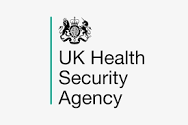PRESS RELEASE : Women’s economic inclusion is valuable for maintaining peace – UK statement to the OSCE [November 2022]
The press release issued by the Foreign Office on 15 November 2022.
Deputy Ambassador Deirdre Brown highlights the importance of women’s economic empowerment at OSCE’s Economic and Environmental Dimension Implementation Meeting.
Thank you, Mister Chair,
It cannot be overstated how vital women’s economic participation is to countries’ economic development, and how valuable women’s economic inclusion is for maintaining peace in post-conflict settings. Today’s meeting is a clear signal of the importance of the topic.
Women and girls are at the heart of the UK’s approach to economic development. We integrate gender provisions into our Free Trade Agreements; partner with G7 Finance Institutions to mobilise investments for women in developing markets; and our Work and Opportunities for Women programme has helped over a hundred thousand women access better jobs and improved working conditions in global value chains.
Over the years OSCE participating States have collectively committed to several important decisions on women’s economic participation; notably in 2011 when we expressed our concern about women’s continued inequality in labour markets; and in 2017 when we recognised the significant contribution of women’s economic empowerment to economic development and cohesive societies.
But these commitments cannot be fulfilled when those we seek to empower are forced to flee bullets and bombs.
Mister Chair, it is currently, the women of Ukraine who are facing some of the greatest threats to their economic empowerment in the OSCE region.
Since Russia launched their war of aggression on 24 February, over 7 million refugees have fled Ukraine, over 90% of whom are reportedly women and children; a further 6 million are internally displaced, including women and children in need of medical care.
Russia’s war has done significant damage to the Ukrainian economy, with inflation forecast to exceed 30% by the end of this year and a public sector funding gap of 38 billion dollars. As we saw during the COVID pandemic, economic shocks hit the most vulnerable hardest, particularly those in more precarious employment; those who cannot work remotely; or those with childcare responsibilities. Women are disproportionately represented in these groups.
To help, the UK has so far provided around 400 million pounds in economic and humanitarian grants to ensure the continued running of vital humanitarian services for Ukrainians. Furthermore the UK’s Good Governance Fund is supporting Ukrainian SMEs to relocate and resume operations in Poland, helping them navigate the legal requirements of operating there. All our programmes mainstream gender equality; and we have also been supporting refugees to access financial services outside Ukraine.
Ukraine’s recovery from Russia’s war of aggression will be a symbol of the power of freedom and democracy over autocracy. But the extent of Russian destruction means Ukraine needs international support to rebuild. At the Ukraine Recovery Conference in Lugano in July, the UK reaffirmed its support for Ukraine’s reconstruction. Among other assistance, the UK has provided guarantees unlocking £1.35 billion of World Bank and European Bank for Reconstruction and Development (EBRD) lending to Ukraine. We look forward to hosting the second Ukraine Recovery Conference next year and a continued focus on women’s economic empowerment at the OSCE.


